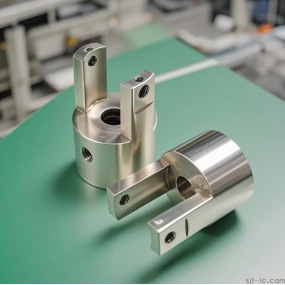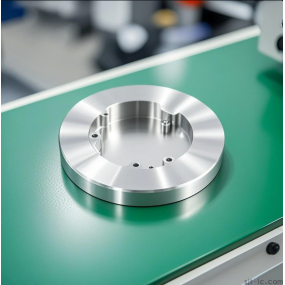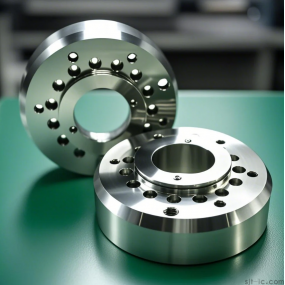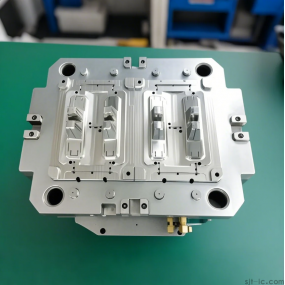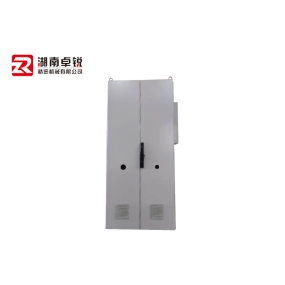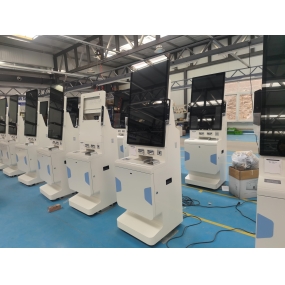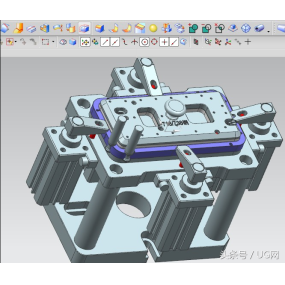Shenyang laser cutting can be divided into four categories: laser vaporization cutting, laser melting cutting, laser oxygen cutting, and laser cutting and controlled fracture.
Folding laser vaporization cutting
Using a high-energy density laser beam to heat the workpiece rapidly increases the temperature, reaching the boiling point of the material in a very short period of time, and the material begins to vaporize, forming vapor. The ejection speed of these vapors is very high, and at the same time as the vapors are ejected, incisions are formed on the material. The vaporization heat of materials is generally high, so laser vaporization cutting requires a large amount of power and power density.
Laser vaporization cutting is commonly used for cutting extremely thin metal materials and non-metallic materials such as paper, cloth, wood, plastic, and rubber.

Folding laser melting cutting
When laser melting cutting, the metal material is melted by laser heating, and then non oxidizing gases (Ar, He, N, etc.) are sprayed through a nozzle coaxial with the beam, relying on the strong pressure of the gas to discharge the liquid metal and form a cut. Laser melting cutting does not require complete vaporization of the metal, and only requires 1/10 of the energy required for vaporization cutting.
Laser melting cutting is mainly used for cutting materials or active metals that are not easily oxidized, such as stainless steel, titanium, aluminum, and their alloys.
Folding laser oxygen cutting
The principle of laser oxygen cutting is similar to that of oxyacetylene cutting. It uses laser as a preheating heat source and active gases such as oxygen as cutting gases. The gas sprayed out reacts with the cutting metal, causing an oxidation reaction and releasing a large amount of oxidation heat; On the other hand, blow the molten oxide and molten material out of the reaction zone to form a cut in the metal. Due to the oxidation reaction during the cutting process, a large amount of heat is generated, so the energy required for laser oxygen cutting is only half of that for melting cutting, and the cutting speed is much faster than laser vaporization cutting and melting cutting.
Laser oxygen cutting is mainly used for easily oxidizable metal materials such as carbon steel, titanium steel, and heat-treated steel.
Folding laser cutting and controlling fracture
Laser scribing is the use of high-energy density lasers to scan the surface of brittle materials, causing the material to evaporate into a small groove when heated, and then applying a certain pressure, the brittle material will crack along the small groove. The lasers used for laser cutting are generally Q-switched lasers and CO2 lasers.
Controlling fracture is the use of the steep temperature distribution generated during laser grooving to create local thermal stress in brittle materials, causing the material to fracture along small grooves.
The content of the article is sourced from the internet. If you have any questions, please contact me to delete it!


 Spanish
Spanish Arabic
Arabic French
French Portuguese
Portuguese Belarusian
Belarusian Japanese
Japanese Russian
Russian Malay
Malay Icelandic
Icelandic Bulgarian
Bulgarian Azerbaijani
Azerbaijani Estonian
Estonian Irish
Irish Polish
Polish Persian
Persian Boolean
Boolean Danish
Danish German
German Filipino
Filipino Finnish
Finnish Korean
Korean Dutch
Dutch Galician
Galician Catalan
Catalan Czech
Czech Croatian
Croatian Latin
Latin Latvian
Latvian Romanian
Romanian Maltese
Maltese Macedonian
Macedonian Norwegian
Norwegian Swedish
Swedish Serbian
Serbian Slovak
Slovak Slovenian
Slovenian Swahili
Swahili Thai
Thai Turkish
Turkish Welsh
Welsh Urdu
Urdu Ukrainian
Ukrainian Greek
Greek Hungarian
Hungarian Italian
Italian Yiddish
Yiddish Indonesian
Indonesian Vietnamese
Vietnamese Haitian Creole
Haitian Creole Spanish Basque
Spanish Basque

